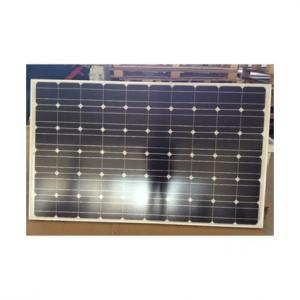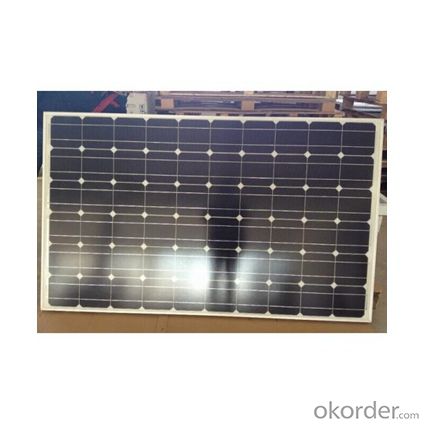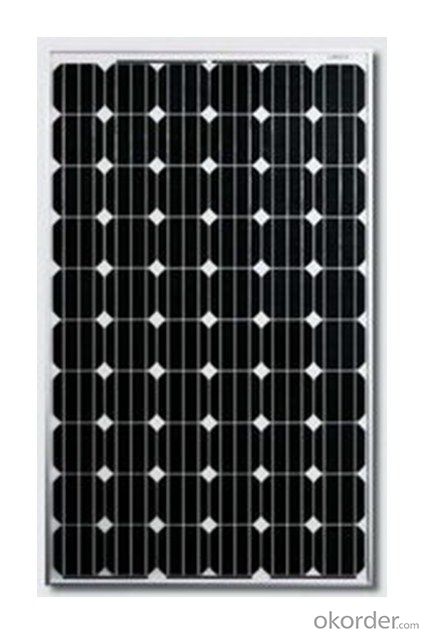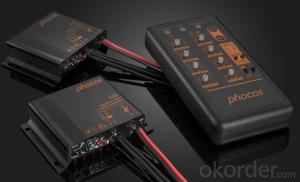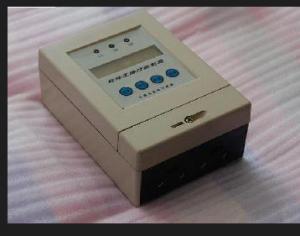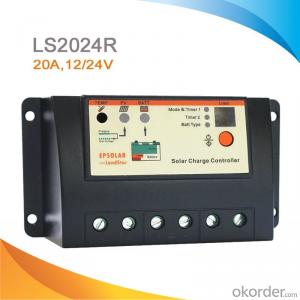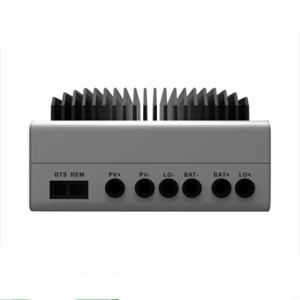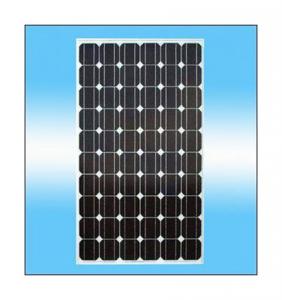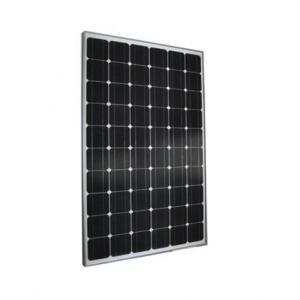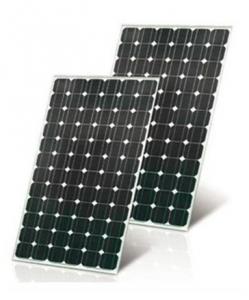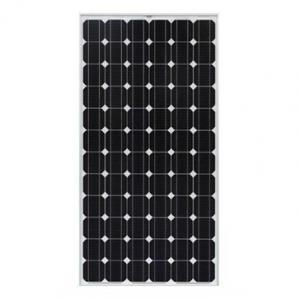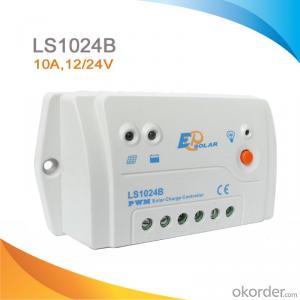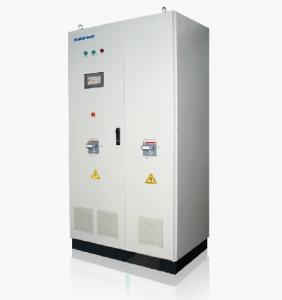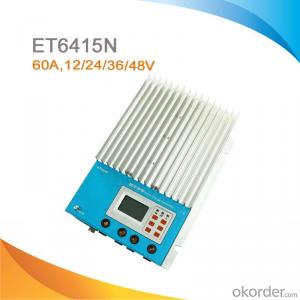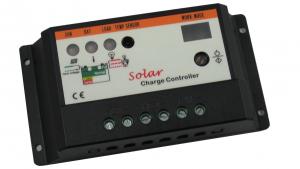Best Solar Energy Controllers - Solar Module Mono-Crystalline 125*125 240W Module
OKorder Service Pledge
OKorder Financial Service
You Might Also Like
A solar panel, or photovoltaic PV module, is a device that is composed of solar cells and which, when struck by photons of light from the sun, generates an electrical current which can then be used to power DC or AC electrical loads.
We are one of the well known manufacturers and suppliers of an extensive range of solar module. Entire range of our products is well checked before offering to the clients to ensure that our products are free from any defect. Our products are delivered within the stipulated time frame. These solar module are available for outdoor applications. Our solar module are designed as per the set industry standards and can be bought at market leading Available with us in various dimensions, these modules are stringently tested under define parameters before the final dispatch by our professional who hold rich industry experience in this domain.
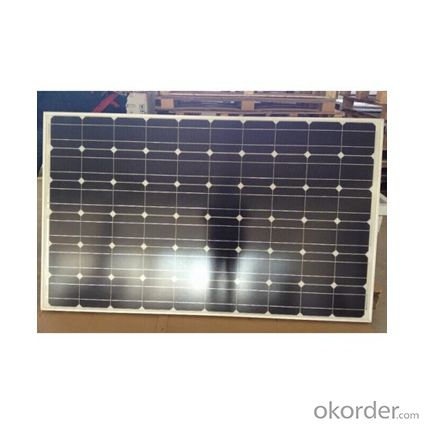
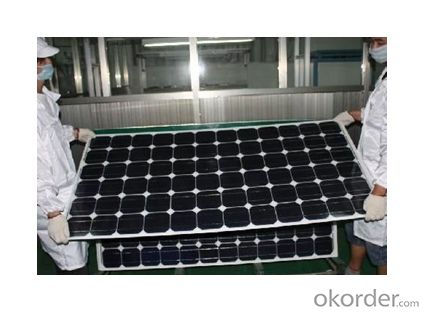
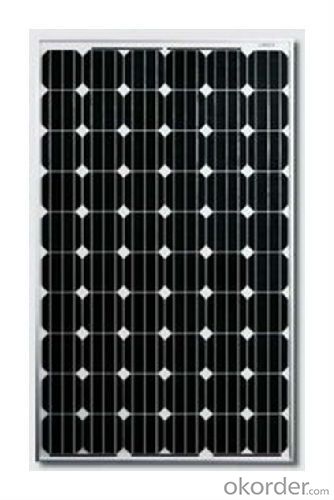
Electrical Characteristics
Max-power (W) | 240 |
Max-Power Voltage (V) | 50.4 |
Max-Power Current (A) | 4.80 |
Open-Circuit Voltage (V) | 60.4 |
Short-Circuit Current (A) | 5.30 |
Mechanical Characteristics
Cable type, Diameter and Length | 4mm2, TUV certified, 1000mm |
Type of Connector | Compatible with MC4 plug |
Arrangement of cells | 6*12 |
Cell Size | 125*125 |
Dimension | 1580*1069*45 |
Weight | 20.5Kg |
Glass, Type and Thickness | High Transmission, Low Iron, Tempered Glass 3.2mm |
Features
Excellent performance under low light environments (mornings evenings and cloudy days)
12 years for product defects in materials and workmanship and 25 years for 80% of warranted minimum power.
Certifications and standards: IEC 61215.
Manufactured according to International Quality and Environment Management System (ISO9001, ISO14100).
FAQ
Q: Do you have any MOQ limit?
Our MOQ is 200 pieces.
Q: How long is the warranty period for the solar modules?
15 years 90% of its nominal power rating.
25 years 80% of its nominal power rating
Q: What kind of loads can I run on PV?
With a correctly designed PV system you can power almost any electrical load. However, as the load size increases the expense also increases. Loads like hot water heaters, air conditioners, room heaters and electric stoves should be avoided. The added cost of trying to power loads like these is very cost prohibitive. If these loads have to be powered it will be a lot less expensive to change the appliance to use an alternative fuel type like propane.
Q: When do I need a charge controller and why?
The safest way to figure out if you need a charge controller is to take Battery Amp Hour Capacity and divide this by the Solar Panel max. power amp rating. If the quotient is above 200, you don't need a controller. If the number is less than 200 than you need a controller.
For example if you have a 100 amp hour battery and a 10 watt panel, you take 100 and divide it by .6 (600mA) and you get 166.6. Since this is less than 200 you need a charge controller. If you have a five-watt panel in the above example you take 100 divided by .3 (300mA) and you come up with 333.3. Since this is larger than 200 you do not need a charge controller. However you still need a blocking diode, to prevent the battery from discharging to the panel at night. So as a general rule of thumb you don't need a charge controller unless you have more than five watts of solar for every 100-amp hours of battery capacity.
Q: What is PV & how does it work?
PV stands for photovoltaic. Photo = Light and Voltaic = Electricity. A solar cell converts light to electricity.
A solar cell is made of silicon. Computer chips are made of this same material. Basically, when light strikes the surface of a solar cell some of it is absorbed into the silicon. This light energy bumps the electrons loose and causes energy to flow.
By packaging approximately 36 solar cells together a solar panel or a solar module is created. When you have more then one solar panels you create a solar array.
- Q: How does a solar controller prevent damage from reverse current flow in the load?
- A solar controller prevents damage from reverse current flow in the load by utilizing a built-in blocking diode. This diode ensures that current can only flow in one direction, preventing any backflow from the load to the solar panel. As a result, the controller safeguards the load from potential damage caused by reverse current flow.
- Q: Can a solar controller be used in grid-tied systems?
- Indeed, a solar controller is compatible with grid-tied systems. While battery charging and load control are not typically necessary in grid-tied systems, a solar controller can still serve multiple functions. For instance, it can monitor solar panel performance, regulate output voltage and current, and ensure seamless integration with the grid to optimize operation. Furthermore, it safeguards the system against overcharging, overheating, and other electrical irregularities. Consequently, although not obligatory, incorporating a solar controller in grid-tied systems can enhance efficiency, reliability, and safety.
- Q: Can a solar controller be used with solar panels that are mounted in different orientations (e.g., horizontal, vertical)?
- Yes, a solar controller can be used with solar panels that are mounted in different orientations. The solar controller is responsible for regulating the energy flow between the solar panels and the battery or grid. It is designed to work with panels of various orientations and angles, allowing for flexibility in installation.
- Q: Can a solar controller be used in a solar-powered greenhouse system?
- Yes, a solar controller can be used in a solar-powered greenhouse system. A solar controller is responsible for regulating and optimizing the charging and discharging of batteries in a solar system. In a solar-powered greenhouse system, the controller can effectively manage the power generated by solar panels, ensuring a reliable and efficient energy supply for the greenhouse's heating, lighting, and ventilation systems.
- Q: Can a solar controller be used with solar-powered indoor healthcare institutions?
- Yes, a solar controller can be used with solar-powered indoor healthcare institutions. A solar controller is a crucial component of a solar power system as it helps regulate the charging and discharging of batteries and controls the flow of electricity from the solar panels to the connected devices or appliances. In the case of solar-powered indoor healthcare institutions, a solar controller would play a vital role in ensuring that the solar panels are efficiently charging the batteries that power the institution's electrical systems. It would also prevent overcharging of the batteries, which can cause damage and reduce their lifespan. Moreover, a solar controller can help manage the electricity flow during periods of low sunlight or high demand. It can prioritize the use of solar energy for critical healthcare equipment and systems, ensuring uninterrupted power supply even during cloudy days or power outages. By utilizing a solar controller, solar-powered indoor healthcare institutions can effectively harness and optimize the energy generated from solar panels, reducing their reliance on traditional power sources and lowering operational costs. Additionally, solar power is a clean, renewable energy source, which aligns with the principles of sustainability and environmental responsibility commonly associated with healthcare institutions. In conclusion, a solar controller is an essential component for solar-powered indoor healthcare institutions as it helps regulate and optimize the use of solar energy, ensuring reliable and sustainable power supply to critical healthcare equipment and systems.
- Q: Can a solar controller be used with solar-powered water pumps?
- Yes, a solar controller can be used with solar-powered water pumps. A solar controller helps regulate the voltage and current from the solar panels to ensure optimal charging and protection of the batteries. It can also control the operation of the pump, allowing it to start and stop based on the available sunlight and water demand.
- Q: Can a solar controller be used with solar-powered indoor lighting systems?
- Solar-powered indoor lighting systems can indeed utilize a solar controller. The purpose of a solar controller is to regulate the power flow from the solar panels to the batteries, ensuring efficient charging and preventing any harm caused by overcharging. Although indoor solar systems may not have the same power demands as their outdoor counterparts, the use of a solar controller can still be advantageous in managing the charging process and prolonging battery life. Furthermore, a solar controller can offer additional functionalities such as dimming options or timers, allowing for customized lighting based on specific requirements. Consequently, incorporating a solar controller in solar-powered indoor lighting systems can optimize the utilization of solar energy and enhance the overall performance and durability of the system.
- Q: How does a solar controller protect batteries from overcharging?
- A solar controller protects batteries from overcharging by regulating the voltage and current output from the solar panels. It constantly monitors the battery's state of charge and adjusts the charging process accordingly. When the battery reaches its optimal charge level, the controller will reduce or completely cut off the charging current to prevent overcharging, which can lead to damage or reduced battery life.
- Q: Can a solar controller be used in a solar-powered electric fence system?
- Yes, a solar controller can be used in a solar-powered electric fence system. The solar controller helps regulate the charging and discharging of the solar battery, ensuring optimal performance and extending battery life. It also protects the battery from overcharging and over-discharging, making it an essential component in a solar-powered electric fence setup.
- Q: Can a solar controller handle power fluctuations from the generator?
- Yes, a solar controller can handle power fluctuations from the generator. The solar controller acts as a regulator and converter, ensuring a stable and consistent flow of power to the connected devices or batteries. It can effectively handle variations in power input from the generator, adjusting the charging or discharging rates to maintain a steady output.
Send your message to us
Best Solar Energy Controllers - Solar Module Mono-Crystalline 125*125 240W Module
OKorder Service Pledge
OKorder Financial Service
Similar products
Hot products
Hot Searches
Related keywords
